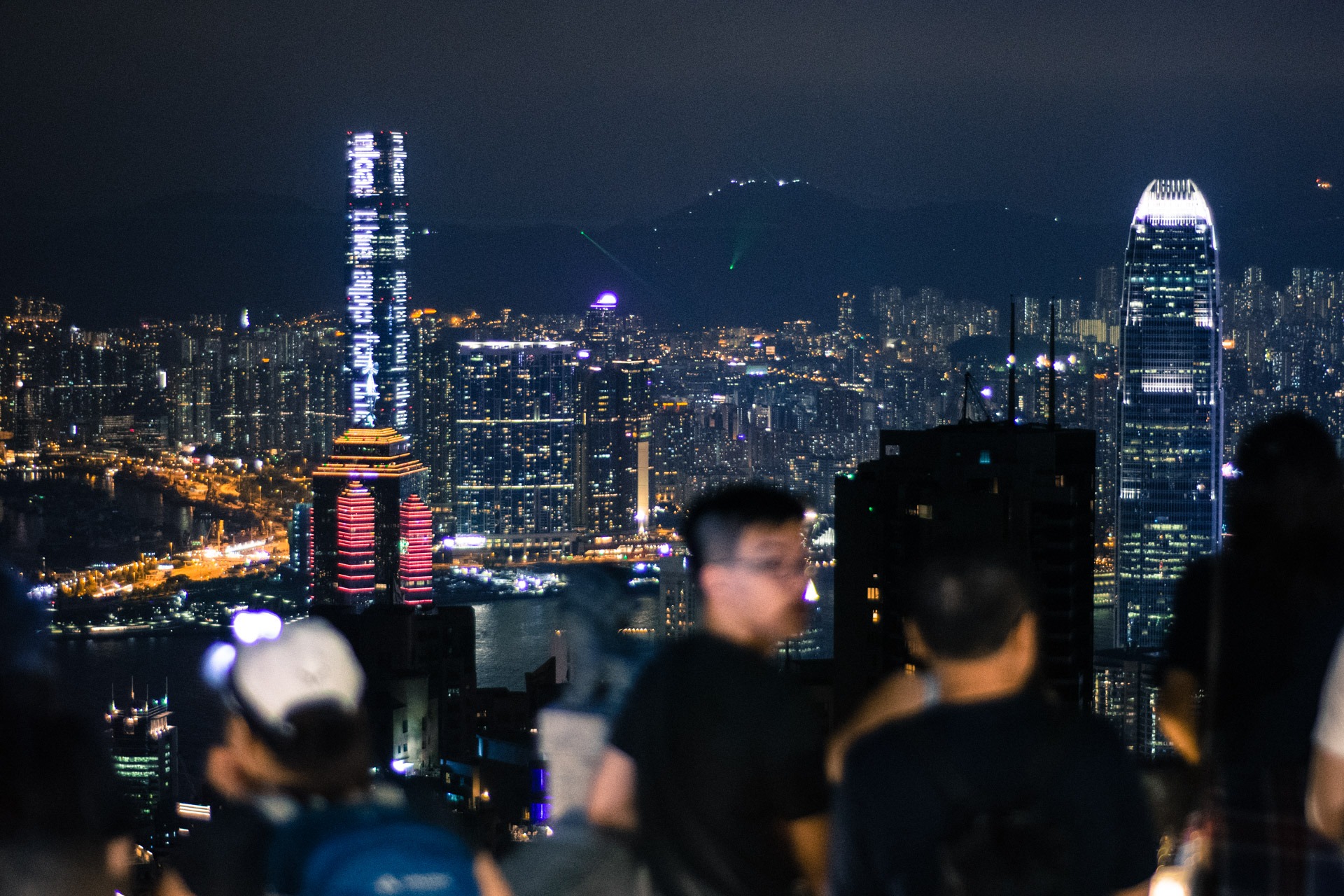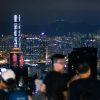Original: 【我所期望的「超越『世界的香港』」】, published in 立場新聞 (Stand News)
Translators: P, LWH, Joy Ming King, yehua
If you would like to be involved in our translation work, please get in touch here.
Translators’ note: Tonight, many Hong Kongers are rallying in Chater Garden in support of the people of Catalonia, against police brutality and Spanish state suppression. Debates on LIHKG and Telegram have been raging about the benefits and drawbacks of such a gesture of solidarity. Some argue that it may alienate erstwhile supporters of Hong Kong, especially in the US, at a time when the HKHRDA is making the rounds at the Senate; or that linking the Hong Kong struggle to that in Catalonia may lead people to believe that we are both pro-independence, separatist movements.
Writing to a general Hong Kong audience on the day before the protest, activist Jacky Chan Man Hei, the former secretary-general of the Hong Kong Federation of Students, argues for solidarity with Catalonia, based on a vision of a “Hong Kong of the world”—one that is not simply engaged in calculations of self-interest, but invested in building genuine internationalist power and solidarity with people experiencing state suppression. For example, in discussing many protesters’ “sixth demand”—to disband the police force—Chan argues: “Connecting with those in the struggle in Catalonia and other places around the world and learning from their experiences may help us find our own solution to these questions.”
In the past few days, online forums have been engrossed in heated discussions over the “Hong Kong-Catalonia Solidarity Assembly” planned for tomorrow night at Chater Garden. There are several key points of contention: “Supporting Catalonia is equivalent to supporting Catalan independence, which will give the CCP an easy excuse to brand us as separatists”; “Supporting Catalonia may adversely affect the legislation of the Hong Kong Human Rights and Democracy Act in the U.S.”; “Why are we only supporting Catalonia – what about Indonesia, Lebanon, Chile, and others?” etc. To address these concerns, the organizers of the event clarified the purpose of the event:
- To call on the Spanish government to deal with Catalan protesters peacefully;
- To condemn the Spanish police for their violent treatment of protesters;
- Nobody should be imprisoned solely for their political views.”
In my opinion, I whole-heartedly support the rally for Catalonia and agree that these three points should be the purpose of the event. I call on everyone to attend the rally. I have three reasons:
I. To go beyond a ‘self-serving Hong Kong’
Hong Kong has always been at the forefront of the development of capitalism. Under the logic of neoliberalism, individualism is hegemonic and everyone acts according to their self-interest. Competition has become the life-defining mission of Hongkongers. As soon as we leave the womb, we are taught incessantly that we need to increase our “competitiveness” by studying more and acquiring more skills, in order to move up the social ladder. Values like community, solidarity, mutual aid, and fellowship are all sidelined in favor of self-interest and economic gain. In other words: “get your own affairs in order before concerning yourself with others.”
But this doesn’t seem to tell the whole story.
The protests of the Yau Ma Tei Boat People in the late 1970s, the 1989 pro-democracy movement, the 1995 protests over the clearing of the rooftop slums at Kingland Apartments, the July 1 march against Article 23 in 2003, the fight to resist the demolition of the Queen’s and Star Ferry Piers, the 2014 Umbrella Movement, and the current anti-extradition movement—this history seems to show another side of Hong Kong and Hongkongers: that they have never been absent from the pursuit of universal values like human rights, democracy, and freedom. Recall that in 2014, various supply stations, first aid stations, and study rooms sprung up at every occupation zone to support those participating in the occupation. In those days, we made no distinctions and took care of every person, regardless of whether they were just passing through, stopping by, or camping out. Some even skipped school and work and sacrificed time with their families to bring supplies to the stations and make meals for protesters.
This summer, in our fight against the extradition bill and against police brutality, we are again seeing the best of Hong Kong. We are not driven by self-interest. We are willing to stay up all night making protest literature, managing protest gear and supplies, putting up Lennon Walls; we are willing to brave a Signal 8 Typhoon to go to court and stand with our arrested comrades; we are willing to use our own money to provide protesters with rides and stationery; we are willing to risk arrest to save our friends on the front lines, down to the last second, in the hope that protesters who are shot will be saved. This is a love for Hong Kong and for Hongkongers; it is also a sign of our pursuit of universal values.
If this is what Hong Kong is, and this is what Hong Kong should be, then we must stand with Catalonia. We may have no “love” for them—our only “love” may be for their scenery, food, and the football players that come from there. But if we’re talking about universal values, then we should cherish this opportunity to show the world what we believe. The “universal values” that Hongkongers believe in are “universal” in their blindness to differences of ethnicity, geography, religion, sexuality or other such differences; we share them as human beings. As long as it is right, regardless of what we may gain, we must stand firm. This has always been the way; and so it will always be. The Hong Kong Human Rights and Democracy Act (HKHRDA) sanctions those elites who damage Hongkongers’ human rights. If we ourselves do not persist in our pursuit of human rights, democracy, and freedom, then how can we convince anyone to pass a law that will protect our rights?
II. Establish a global anti-authoritarian front
Of course, it is not just about Catalonia—we must stand with those struggling against oppression in Indonesia, Lebanon, Chile, Tibet, East Turkestan, and other places. If we feel that we should be consistent in our solidarity and organize rallies for these other places too, I would absolutely support this. The rally for Catalonia is only the first step, with many more to come. Authoritarianism and police brutality transcend geopolitical borders, but more importantly, those regimes are also sharing a set of methods and technologies to surveil and control their own people. Therefore, as oppressors around the world are establishing a global ruling alliance, the oppressed peoples of the world must stand together and share techniques and resources with each other, just like our opponents.
I understand that so-called “people’s diplomacy” extends beyond soliciting support from foreign politicians. More importantly, we need to connect with the people of other countries. As we envy the democracy, society, and education system of foreign countries, we should also empathize with their struggles and pain. Police violence in Catalonia may actually be more terrifying than in Hong Kong—just in last week’s demonstrations, over sixty journalists were assaulted and arrested. Of course, we absolutely cannot defend the Hong Kong Police Force. Rather, we should think about how we can actually implement our demand to disband and reform the police force. Connecting with those in the struggle in Catalonia and other places around the world and learning from their experiences may help us find our own solution to these questions.
As oppressors around the world are establishing a global ruling alliance, the oppressed peoples of the world must stand together and share techniques and resources with each other.
The People’s Republic of China has already been slowly expanding its sharp power to different parts of the world—today’s Hong Kong may very well be tomorrow’s South Africa, the Netherlands, Germany, etc. At the frontlines of resistance against the Chinese state and authoritarianism, Hongkongers need to stand resolutely on the side of those struggling against similar oppressions around the world. Through solidarity with oppressed peoples in different places, we can build a web of resistance to encircle the authoritarians, mobilize people of other countries to lobby for human rights legislation like the HKHRDA, and safeguard democracy, freedom, and basic human rights everywhere.
III. Actualizing Hong Kong’s agency
Published several days ago, Tsai Tsun-Wai’s article “Beyond a Hong Kong of the World” points out that in response to the anti-extradition movement, “Hongkongers have completely cast off the shackles of yesterday and are steadfastly rejecting the continued objectification, discarding, duping, and trampling of Hong Kong, and have already entered a new mode of living. This demonstrates Hong Kong’s agency and is an important step towards recovering its spirit.” By various methods (buying out ads in international newspapers, demonstrations, lobbying), Hongkongers have raised their voices to the international stage and exhibited Hong Kong’s subjectivity. Through intervening, shaking up, and transforming a seemingly impenetrable international system, Hongkongers have won their city an unprecedented level of regard from the world.
The solidarity rally for Catalonia and the discussions preceding it is also an opportunity to demonstrate and establish the agency of Hongkongers. On the international front, we pay close attention to the attitudes of the United States, United Kingdom, and the European Union. At the same time, we hope that they will understand our position and value our ideas. But the question is, what are the ideas of Hongkongers? If we don’t even have ideas, then how will other people respond? Moreover, can we have our own ideas, or must we be limited by the chessboard of international politics? I firmly believe that, whatever your position, daring to speak out must be the first step towards casting off our shackles. Thirty years ago, we lost the opportunity to participate in the Sino-British negotiations—from the beginning, this three-legged table was left to stand on only two legs. Hongkongers have never had the chance to speak out on the international stage about post-1997 arrangements for their city. This time around, Hongkongers need to seize the moment, take a concrete stance on the international stage, and loudly proclaim our ideas and define our position in international politics. In addition, no matter what happens, a lot of foreign media outlets are already comparing Hong Kong and Catalonia. Instead of having other powers interpret our situation for us, why don’t we take the opportunity to express our stance seriously? Hongkongers are steadfast in their pursuit of human rights, democracy, freedom and other universal values.
Can we have our own ideas, or must we be limited by the chessboard of international politics?
In the conclusion of the aforementioned article, Choi talks about the “five second vacuum” when Hong Kong’s sovereignty was handed over. Within the wrestle for power between China and Britain, that “five second vacuum” made the existence of “Hong Kong” palpable. So how are we to fill this vacuum? What kind of Hong Kong do we want to build? The answer has been made clear on the streets through the last four months and it is what I want to see tomorrow night, too—a “Hong Kong of the world” that goes beyond itself. See you at Chater Garden.
[1] Quote: “In order to coordinate the flag-raising ceremony in the handover, representatives from Britain and China had a whopping 16 rounds of diplomatic negotiations. China advocated to have its flag raised by 00:00:00 on July 1, 1997, refusing to let Britain have Hong Kong for another half-second. Britain would not budge either and insisted that China could not raise its flag before June 30 was over. Finally, the two sides agreed that Britain would lower its flag at 11:59:58. The last two seconds would leave just enough time for the conductor of the Chinese military orchestra to raise the baton for the national anthem to begin.
The two hegemons held on to every second that they owned Hong Kong, and yet history played a practical joke on everyone. In the end, Britain lowered the Union Jack at 11:59:53 on June 30, 1997—7 seconds early. Even so, the conductor of the Chinese military orchestra only raised the baton at the 58th second and the music only began to play on July 1. And so, from 11:59:53 to 11:59:58 on June 30, 1997, there was a “five-second vacuum”.
A writer once wrote: in those five seconds, he truly felt the existence of “Hong Kong.”





